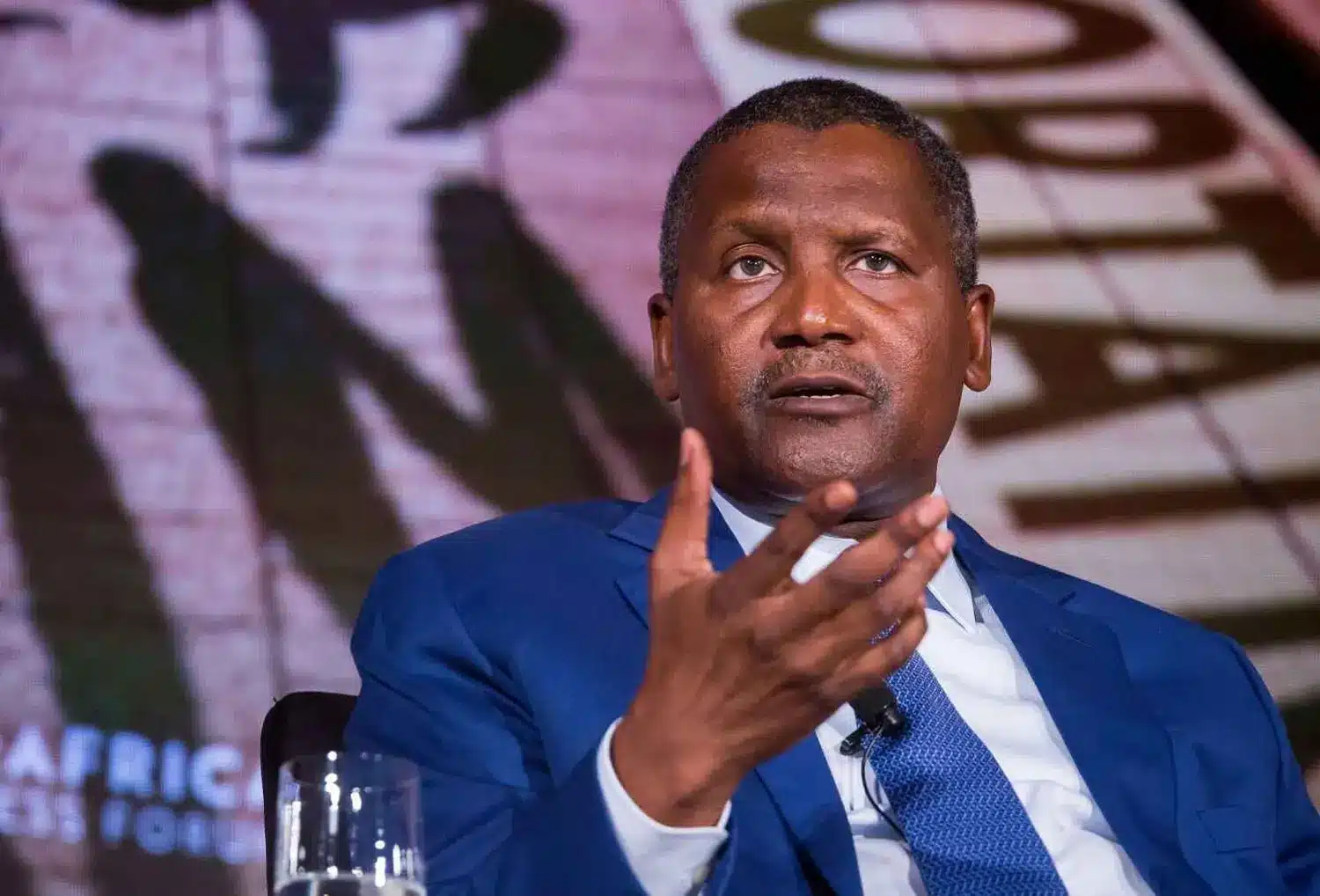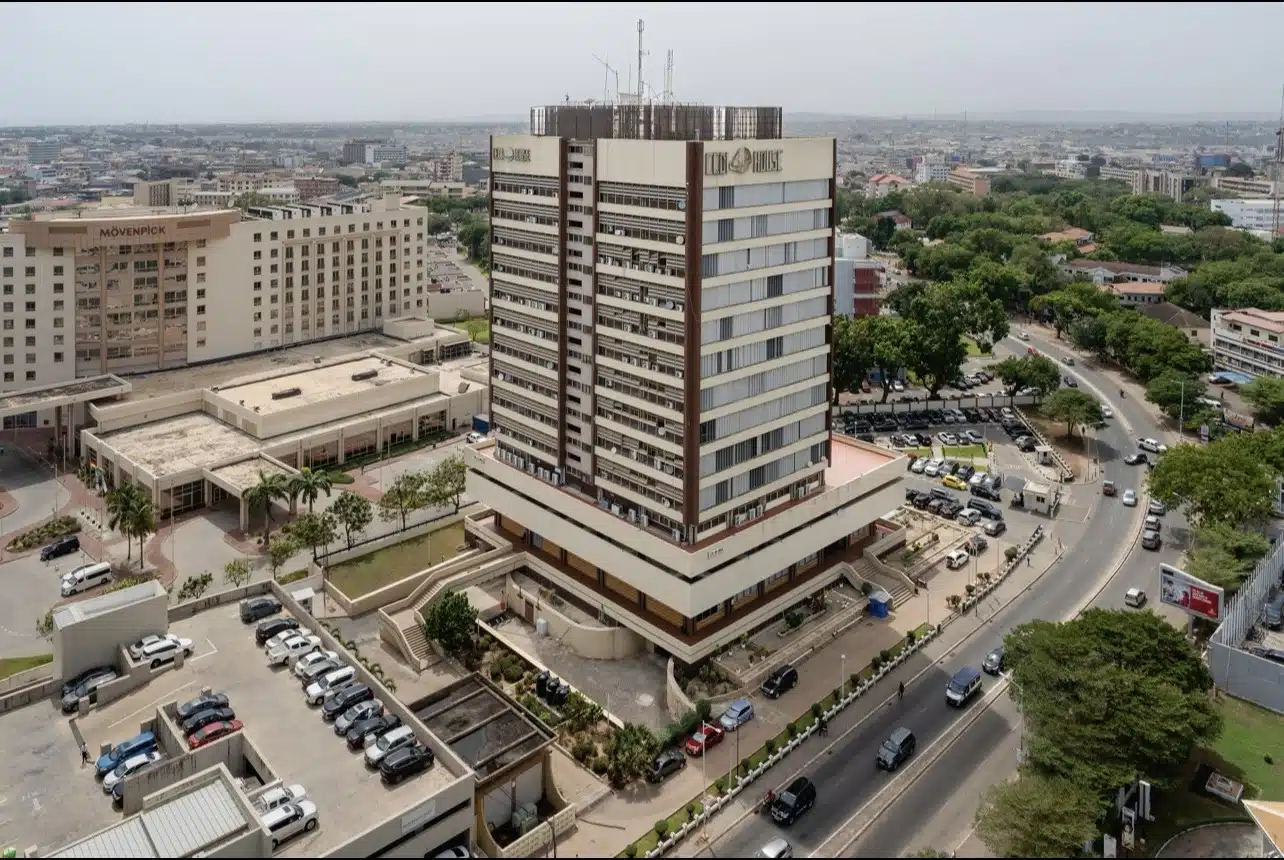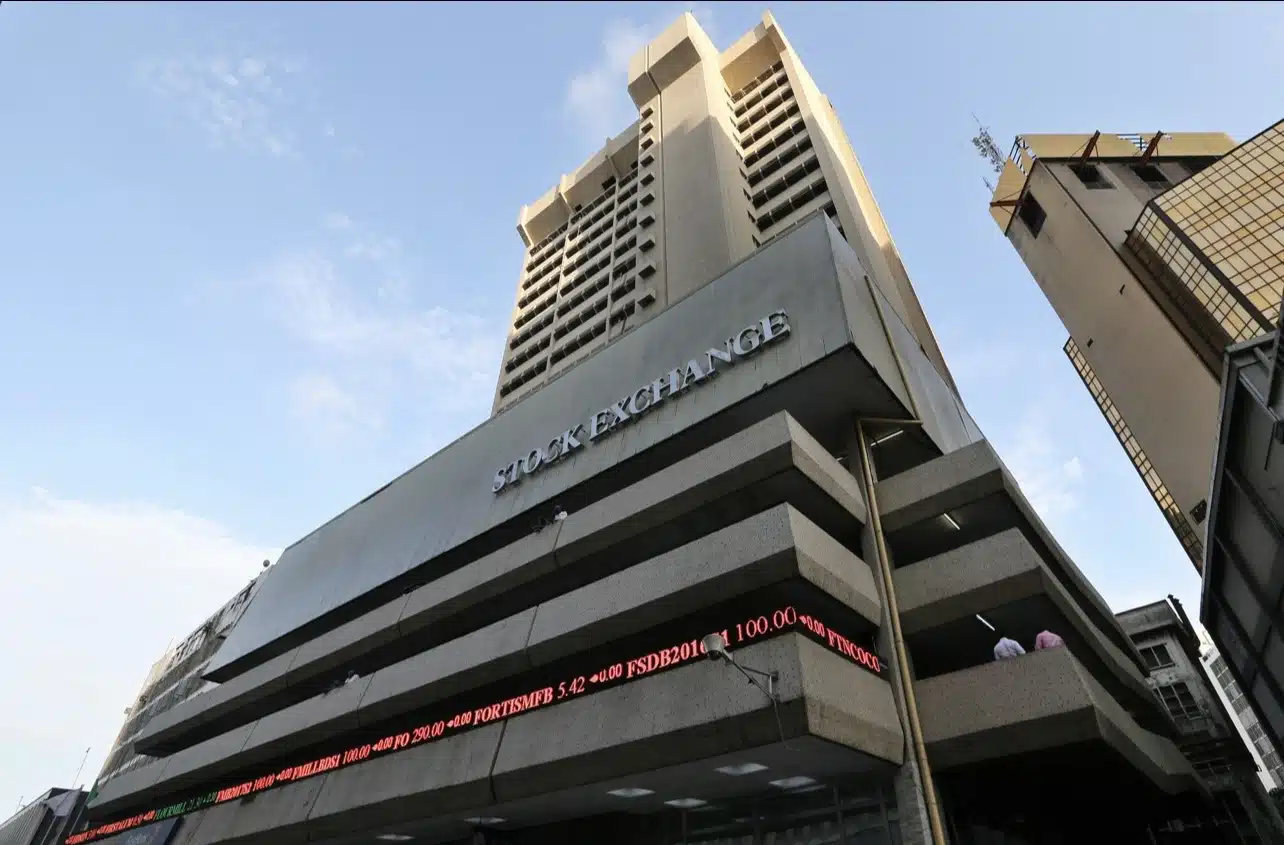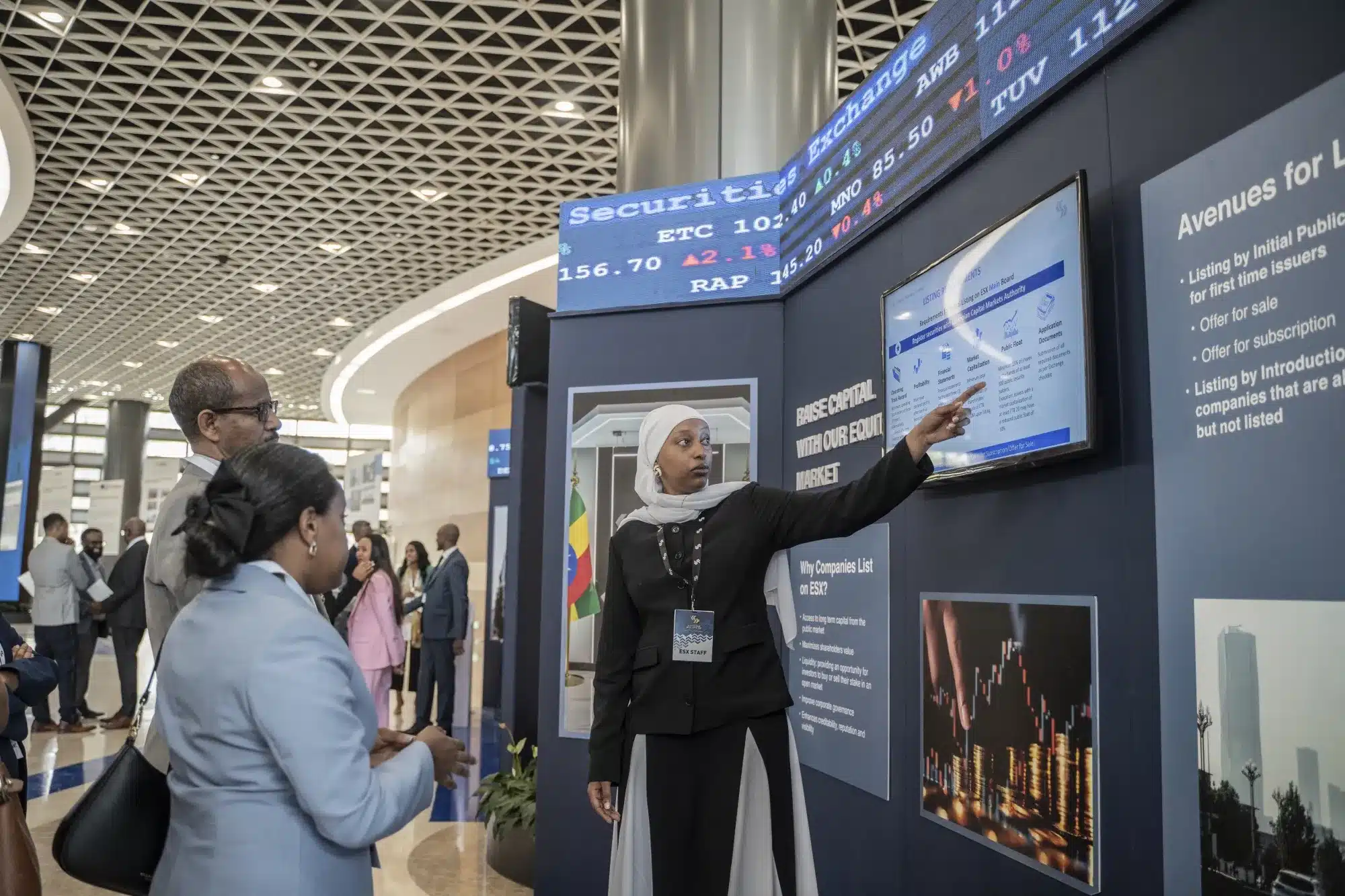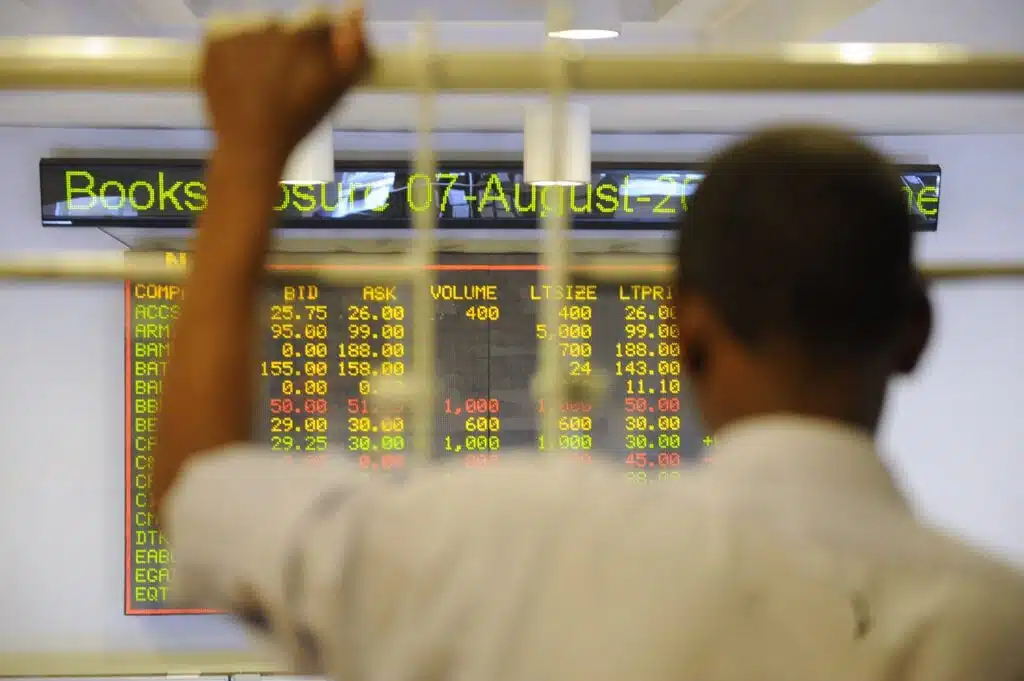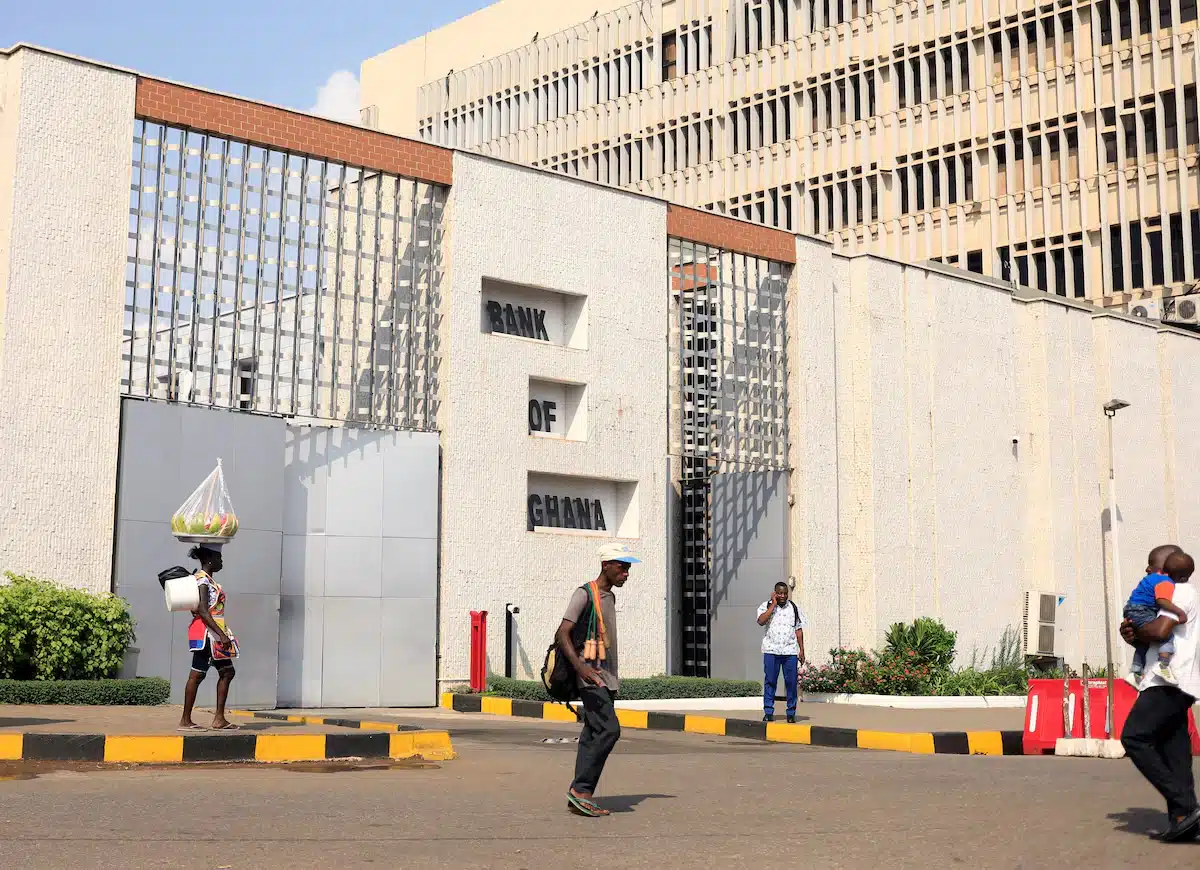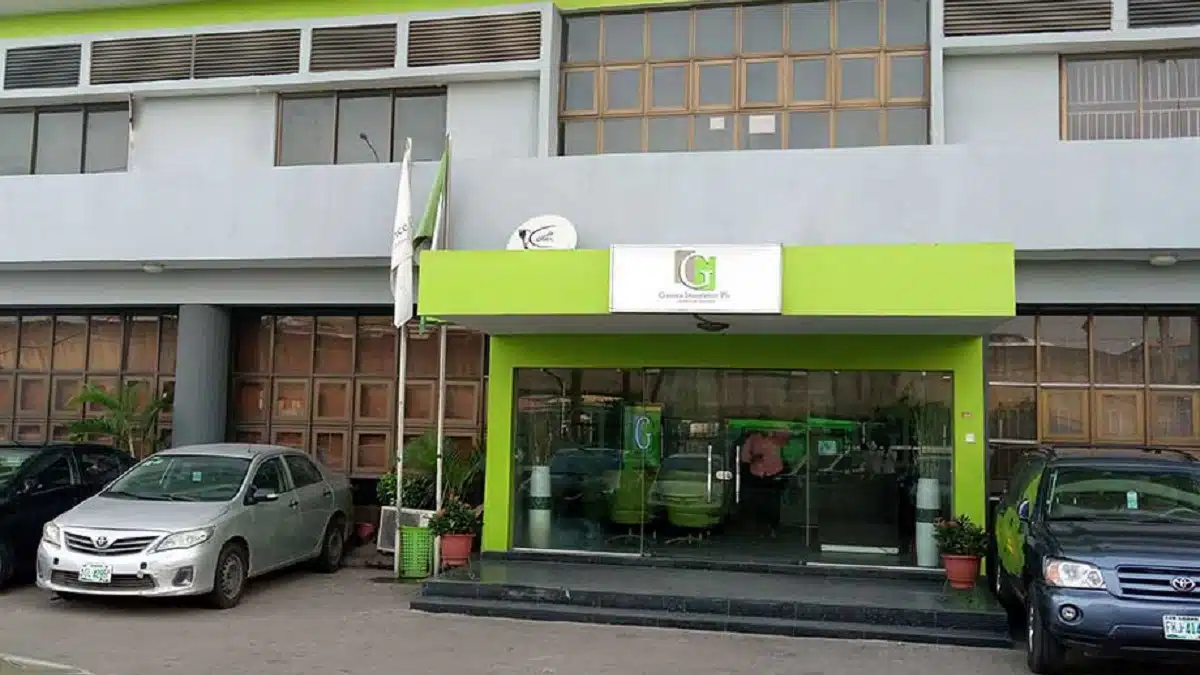Dangote Cement Plc, Africa’s biggest cement producer, has seen its market capitalisation surpass the ₦11 trillion mark following a 2.42% rise in its share price to ₦665.0 ($0.46) on Friday.
This development cements its position as the second most valuable company on the Nigerian Exchange Limited (NGX), behind BUA Foods, valued at ₦12.5 trillion ($8.58 billion).
The stock closed with a market value of ₦11.2 trillion ($7.68 billion) and maintained that position on Monday and Tuesday.
The rally comes three days before the pan-African group released its third-quarter 2025 financial results.
“Dangote Cement began the year with a share price of ₦478.8 ($0.31) and has since gained 38.9% on that valuation, ranking 92nd on the NGX in terms of year-to-date performance,” said African Stock Exchanges, a real-time market tracker.
“Shareholders can be optimistic about DANGCEM, knowing the stock has accrued 27% over the past four-week period alone—ninth best on the NGX.”
Trailing Dangote Cement are MTN Nigeria with a market value of ₦10.8 trillion ($7.72 billion), Airtel Africa at ₦8.68 trillion ($5.98 billion), and BUA Cement, a sister company to BUA Foods, at ₦6.01 trillion ($4.19 billion).
Profit surges 166% despite slight drop in sales
Dangote Cement, owned by Africa’s richest man, Aliko Dangote, on Monday reported a profit of ₦743.3 billion ($476.4 million) for the first nine months of the year, representing a 166% increase compared to the same period in 2024.
According to its unaudited financial statement, group revenue rose 23.2% to ₦3.15 trillion ($2.01 billion) despite a 2.1% decline in sales volumes to 20.2 million metric tonnes.
“The commissioning of our 3Mta Côte d’Ivoire grinding plant in October marks another major step in Dangote Cement’s growth journey, increasing our total installed capacity to 55Mta across Africa,” CEO Arvind Pathak said in the earnings report. “This milestone reinforces our commitment to regional self-reliance and strengthens our position as the continent’s leading cement producer.”
He noted that while group volumes declined marginally due to softer demand in a few markets, exports from Nigeria grew 23.0%, supported by 27 successful clinker shipments to Ghana and Cameroon.
“We continue to advance our sustainability agenda with the phased delivery of 1,600 CNG-powered trucks that will cut logistics costs and carbon emissions,” Pathak added.
He also said construction of the Itori Integrated Plant “is progressing well and will soon enhance domestic capacity and open new export opportunities.”
BUA cement tops sector growth in 2025
Despite Dangote’s dominance, BUA Cement Plc recorded the highest earnings growth among Nigeria’s three biggest producers in the first nine months of 2025.
A Finance in Africa of analysis of the manufacturers’ results shows BUA Cement’s after-tax profit surged 491.9% year-on-year, compared with 166.3% for Dangote Cement and 246% for Lafarge Africa.
Expansion into Botswana
Last month, newly appointed Chairman Emmanuel Ikazoboh revealed that Dangote Cement is expanding into Botswana, with a new plant that will raise its footprint to 12 African countries.
Earlier this year, Dangote announced a $400 million plan to revive a second production line at the Mugher Cement Plant in Ethiopia.
With a production capacity of 52 million tonnes per annum (Mta), the company currently operates in Nigeria, Cameroon, Congo, Ghana, Ethiopia, Senegal, Sierra Leone, South Africa, Tanzania, and Zambia.
“We are fully aware of the challenges in South Africa, which is why we’re opening a plant in Botswana, geographically close to the market,” Ikazoboh said. “South Africa still imports cement, and while we have urged the government to curb imports, progress has been slow.”
He noted that the Botswana blending plant will boost production, enhance profitability, and reduce reliance on South African operations.
Over the past 15 years, Dangote Cement has invested roughly $10 billion across Africa.
South Africa, the continent’s most industrialised economy, remains a net importer of cement, with imports—mainly from Vietnam, Pakistan, Saudi Arabia, the UAE, and Mozambique—rising 18% in 2023 to 979,000 tonnes, according to Chronux Research.
Botswana, with a population of 2.4 million, is working to transform from a net importer into a potential regional exporter after government moves to limit imports. Domestic producers such as PPC Botswana and Cheetah Cement are ramping up capacity to meet demand and support job creation.
Last year, the government restricted cement imports to bulk shipments of at least 1,000 kg. Current national demand is estimated at 620,000 tonnes per year, though that figure has slightly declined in recent years.
Note: All currency conversions use the following rates — $1 = ₦1,458.4 (Oct 24, 2025); $1 = ₦1,453.1 (Oct 27, 2025); and an average of $1 = ₦1,560 for January–September 2025.

